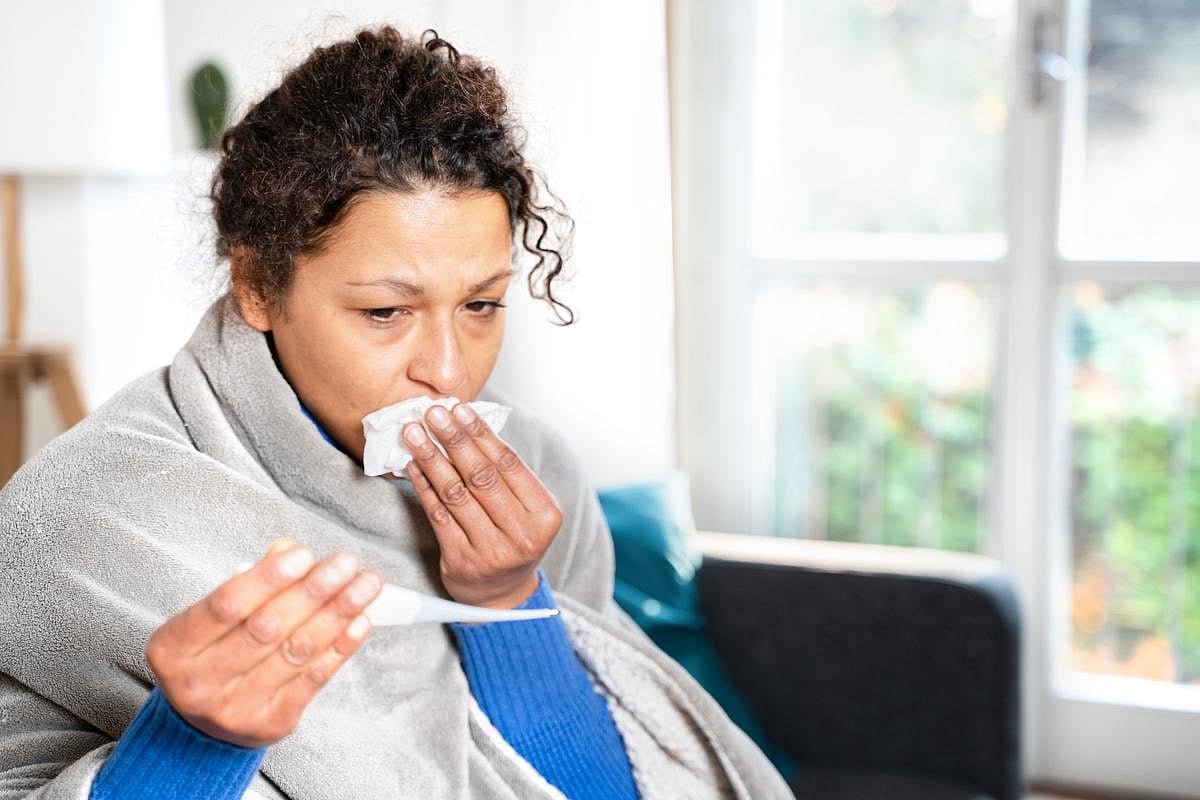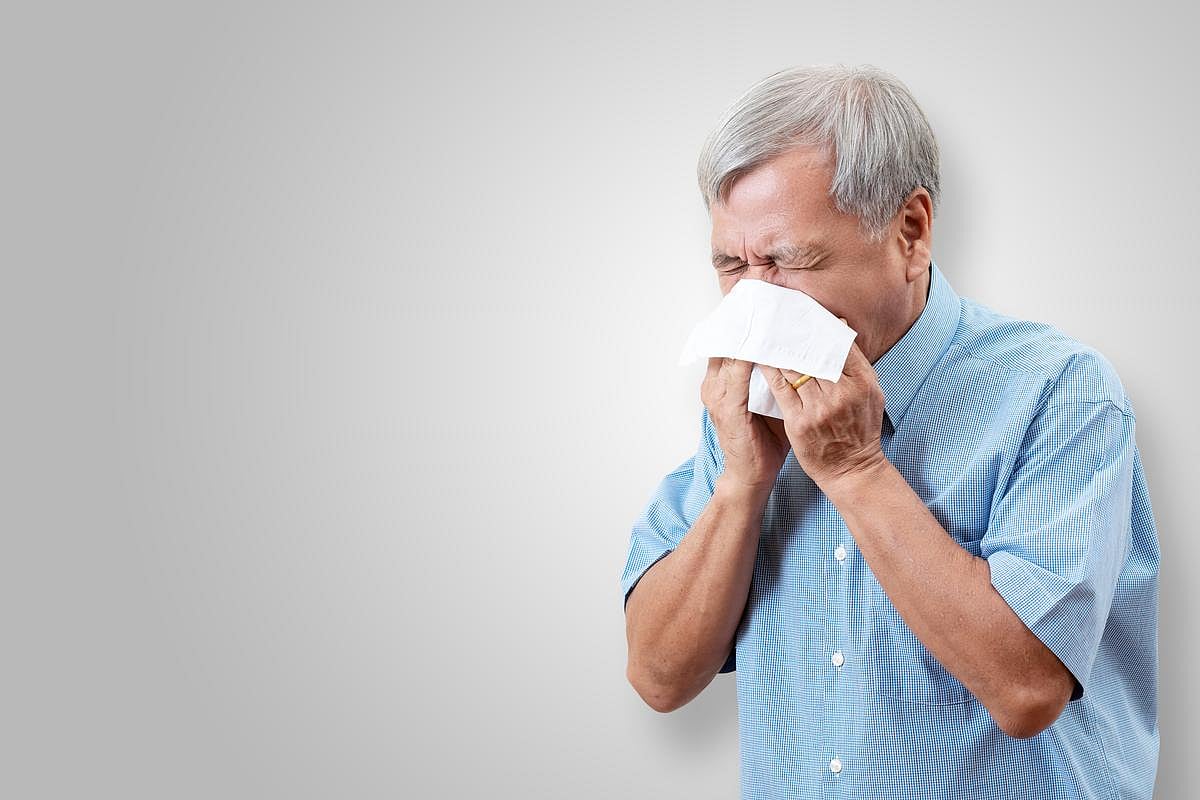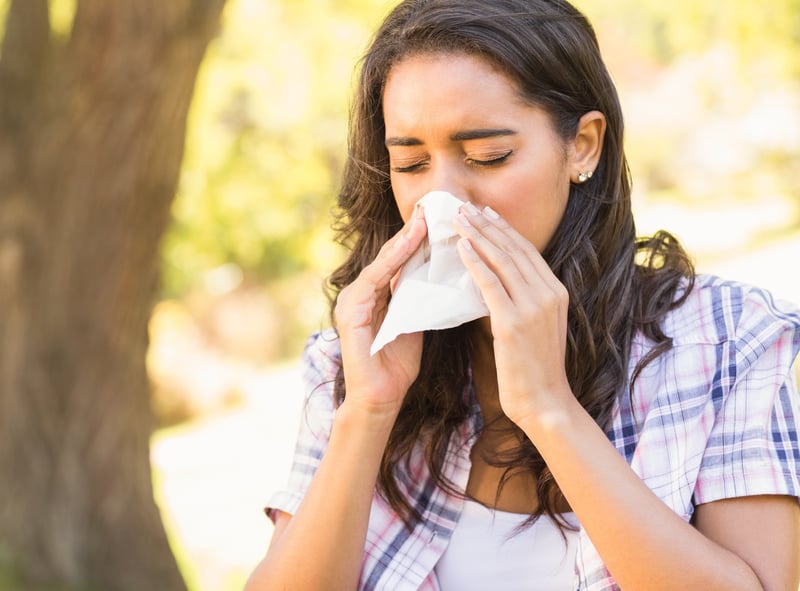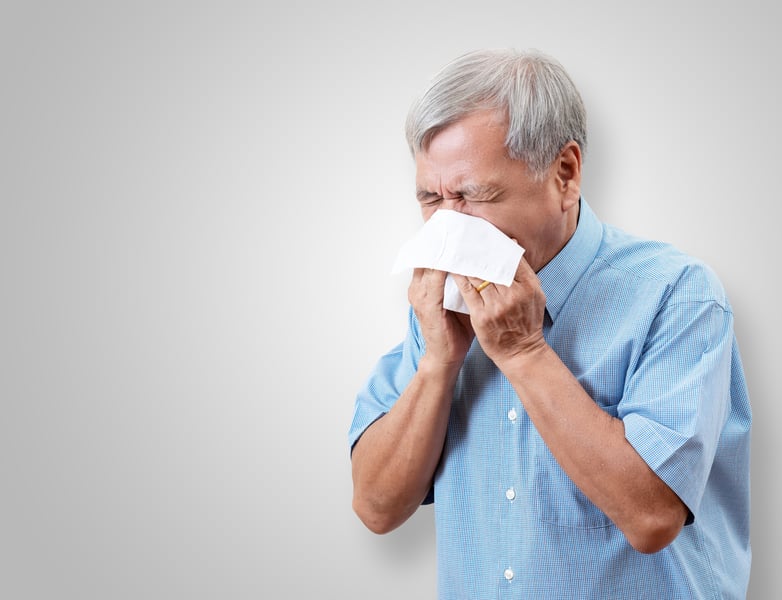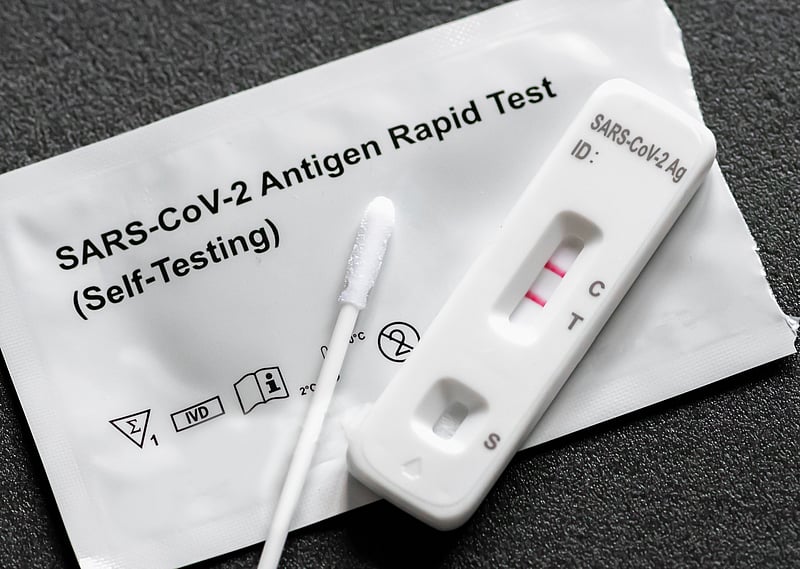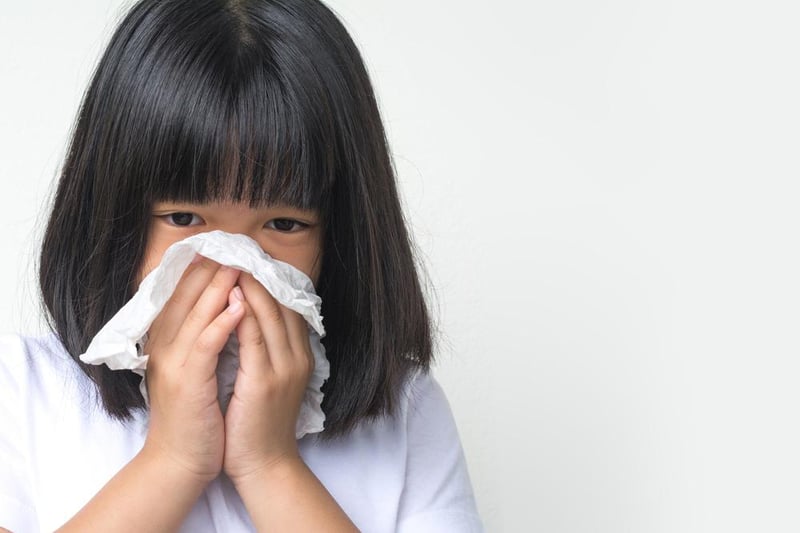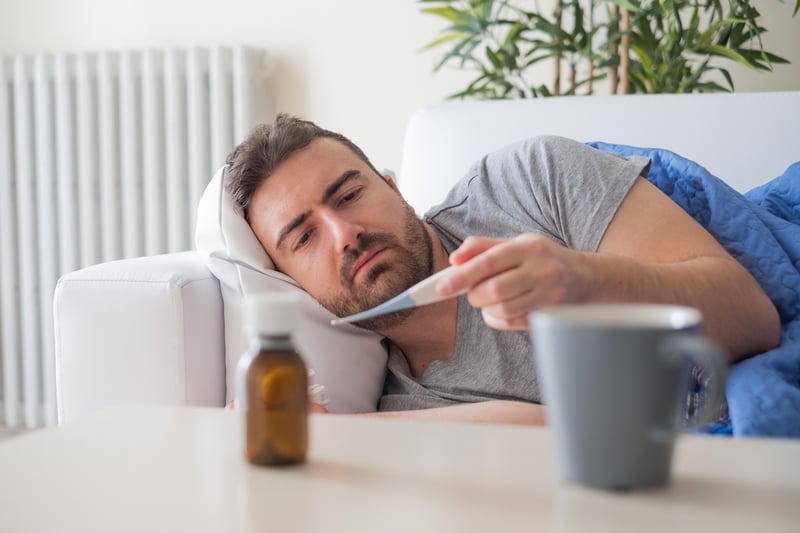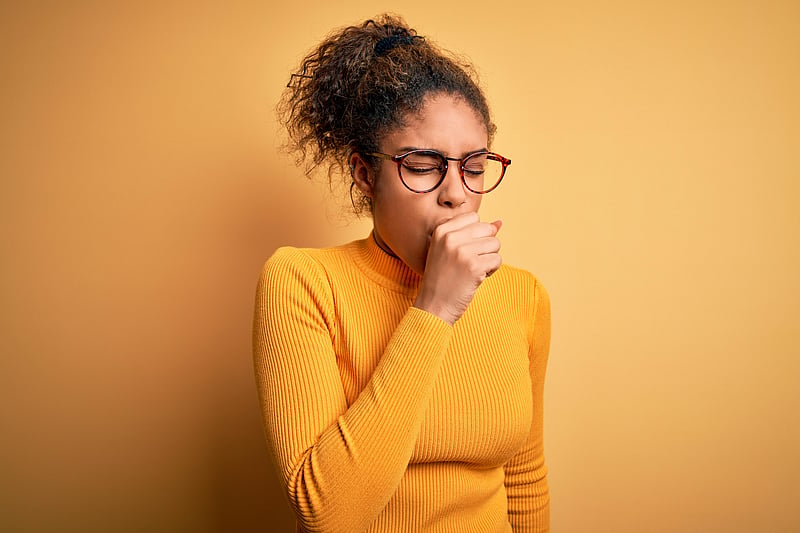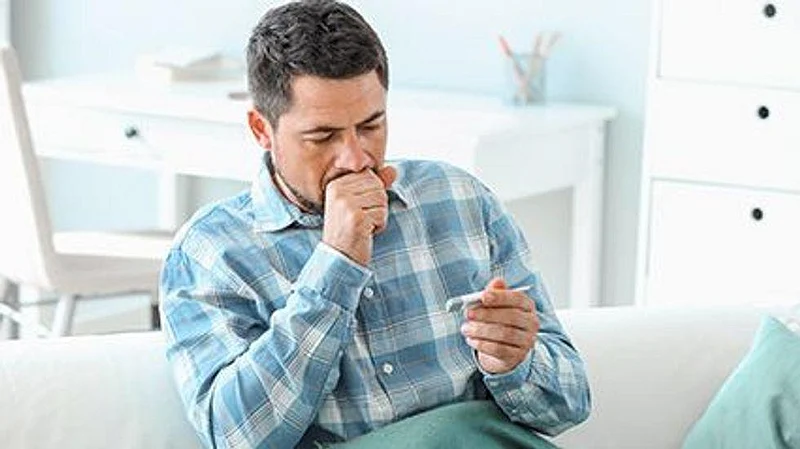Please call us to schedule your appointment or if you need us to help you decide which vaccinations you need.
(315) 848-3784
NEW! Access your prescriptions online. Click "Sign Up Today!" to create a new account.
Download our NEW Mobile App!
Get Healthy!
Results for search "Common Cold".
18 Feb
A Good Night’s Sleep Is a Powerful Weapon During Cold and Flu Season
A sleep specialist from the Cleveland Clinic explains why sleep is important to boosting your immunity while common respiratory illnesses surge in the U.S.
Health News Results - 36
WEDNESDAY, Jan. 21, 2026 (HealthDay News) — Why does a cold virus knock some people flat while others barely feel it?
A new study suggests the answer may come down to what happens inside your snoot.
Researchers found that how cells in the nasal passages respond to rhinovirus, the most common cause of a cold, helps decide whether a person develops symptoms and how severe ...
- I. Edwards HealthDay Reporter
- |
- January 21, 2026
- |
- Full Page
Sleep-deprived night shift nurses are at greater risk for the common cold and other infectious diseases, a new study says.
Shift work and its impact on quality sleep can wreak havoc on nurses’ immune systems, making them more vulnerable to infection, researchers report in the journal
In the throes of winter's yearly round of respiratory virus outbreaks, it pays to remember what Grandma told you.
Wash your hands often, cover your nose and mouth with a tissue when you sneeze or cough and stay away from folks who may be infected. And, of course, wearing a mask won't hurt.
Respiratory viruses that cause the
More than a year after its advisory panel unanimously declared the drug phenylephrine to be useless against nasal congestion, the U.S. Food and Drug Administration is proposing that it be removed from common over-the-counter decongestants.
Products that include phenylephrine as an active ingredient...
- HealthDay Reporter
- Ernie Mundell
- |
- November 7, 2024
- |
- Full Page
A non-drug nasal spray could theoretically help stop the spread of respiratory viruses like the flu and COVID-19 better than wearing a mask, a new study suggests.
The spray uses ingredients that are medically inactive to trap germs in the nose before they can infect a person, researchers said.
<...- HealthDay Reporter
- Dennis Thompson
- |
- September 25, 2024
- |
- Full Page
It's that time of year when respiratory viruses start to circulate widely, but how can you tell the difference between the symptoms of a cold, the flu and COVID?
Dr. William Brian Glenn, from Hackensack Meridian Medical Group in New Jersey, shares what you need to know to be ready for whatever...
- HealthDay Reporter
- Robin Foster
- |
- September 22, 2024
- |
- Full Page
Saltwater nose drops can reduce the length of a kid’s cold by two days, a new study demonstrates.
“We found that children using saltwater nose drops had cold symptoms for an average of six days, where those with usual care had symptoms for eight days,” said researcher
Every cold and flu season, folks are flooded with ads for zinc lozenges, sprays and syrups that promise to shorten their sniffles.
Zinc might indeed reduce the duration of common cold symptoms by about two days, a new evidence review says.
However, the evidence is not conclusive, and ta...
- HealthDay Reporter
- Dennis Thompson
- |
- May 9, 2024
- |
- Full Page
Want to prevent a respiratory infection?
A fingerful of Neosporin antibiotic swabbed inside your nose might help you fight off a range of invading respiratory viruses, a new study claims.
Lab animals whose noses were treated using neomycin -- the main ingredient in over-the-counter Neosporin ointment -- mounted a robust ...
- HealthDay Reporter
- Dennis Thompson
- |
- April 23, 2024
- |
- Full Page
Doctors sometimes prescribe antibiotics to help treat a cough, but a new study shows the drugs won't help reduce the severity or duration of coughing -- even if a bacterial infection is the culprit.
Lower respiratory tract infections that cause coughing have the potential to become more dangerous, with 3% to 5% of these patients suffering from
America's most popular cold medications contain a nasal decongestant that doesn't work, creating a knotty dilemma for regulators, a new study reports.
Cold remedies containing phenylephrine remain consumers' most popular choice, despite decades of concern that the decongestant simply isn't effective, researchers say.
The U.S. Food and Drug Administration is considering whether to pu...
- HealthDay Reporter
- Dennis Thompson
- |
- February 9, 2024
- |
- Full Page
A disturbing number of people sick with an infectious disease conceal their illness to avoid missing work, travel or social events, new research reveals.
About three in four people (75%) had either hidden an infectious illness from others at least once or might do so in the future.
These folks reported boarding planes, going on dates and engaging in other social activities while sic...
- HealthDay Reporter
- Dennis Thompson
- |
- January 31, 2024
- |
- Full Page
The old saying "feed a cold, starve a fever"is baloney, doctors say.
People fighting off a seasonal respiratory virus need adequate nutrition, regardless of their symptoms, according to advice from the Baylor College of Medicine in Houston.
Fever is just one of the many defense mechanisms the human body uses to stave off any infection, said
The maker of Robitussin has recalled eight lots of Robitussin Honey CF Max Day Adult and Robitussin Honey CF Max Nighttime Adult cough syrups.
The products, which are made by Haleon, may be contaminated with a microbe, and "in immunocompromised individuals, the use of the affected product could potentially result in severe or life-threatening adverse events such as fungemia or disseminate...
- HealthDay Reporter
- Ernie Mundell
- |
- January 25, 2024
- |
- Full Page
Sore throats are commonplace during cold and flu season, but luckily there are lots of home remedies that can help ease your misery, doctors say.
These remedies "aren't quick fixes for an illness,"but they can help ease discomfort, said Dr. Heidi Hutchison, a family practice physician at Penn State Health Medical G...
- HealthDay Reporter
- |
- December 11, 2023
- |
- Full Page
Air filters might help keep the air in your home fresh, but a new review finds they don't appear to reduce your risk of catching an airborne virus.
Technologies designed to make indoor spaces safer from infection are not effective in the real world, researchers from the University of East Anglia in the UK argue.
The team analyzed data from 32 prior studies in which air treatment tec...
- HealthDay Reporter
- Dennis Thompson
- |
- November 17, 2023
- |
- Full Page
CVS Health plans to pull cold medications that contain phenylephrine from its store shelves after federal regulators determined recently that the decongestant doesn't work.
Oral phenylephrine is an active ingredient in such well-known products as Sudafed and Dayquil. An FDA advisory committee ruled las...
- HealthDay Reporter
- Cara Murez
- |
- October 20, 2023
- |
- Full Page
Long COVID, a constellation of symptoms that extend past the initial illness, is now a recognized condition.
But researchers say COVID-19 may not be the only respiratory virus that causes these lasting health impacts -- "long colds" may also exist.
"Our findings shine a light not only on the impact of long COVID on people's lives, but also other respiratory infections. A lack of aw...
- HealthDay Reporter
- Cara Murez
- |
- October 6, 2023
- |
- Full Page
Symptoms of mild COVID-19 infection have shifted this season, and now are more akin to those of allergies and the common cold, doctors say.
Many people with COVID-19 now are presenting with upper respiratory symptoms like runny nose, watery eyes and a sore throat, said Dr. ...
- HealthDay Reporter
- Dennis Thompson
- |
- September 21, 2023
- |
- Full Page
For decades, sick people have been taking essentially worthless over-the-counter cold remedies to clear their stuffy noses, a key advisory panel for the U.S. Food and Drug Administration said Tuesday.
The panel voted unanimously that nonprescription oral medications containing phenylephrine -- including Sudafed PE, Vicks Sinex and Benadryl Allergy Plus Congestion -- don't do anything to e...
- HealthDay Reporter
- Dennis Thompson
- |
- September 12, 2023
- |
- Full Page
Two new studies looked to explain an increased risk of respiratory infections like coughs and colds in babies and young children, finding city living to be among the culprits.
Young children who grow up in towns and cities instead of the countryside suffer more respiratory infections, according to research presented Monday at a meeting of the European Respiratory Society, in Milan, Italy....
- HealthDay Reporter
- Cara Murez
- |
- September 11, 2023
- |
- Full Page
For the fourth summer in a row, Americans are experiencing a COVID-19 surge, this one marked by a rise in hospital admissions, emergency room visits, test positivity rates and wastewater data.
The good news: It's unlikely that most cases will be severe or that the surge will be long-lasting, experts say.
The U.S. Centers for Disease Control and Prevention is
As the seasons change and the weather shifts, it's not uncommon to experience symptoms like sneezing, coughing and congestion.
But how do you know if you're dealing with a common cold or allergies? The two can have similar symptoms, making it tough to tell an allergy from a cold. Here, experts offer tips on how to discern the difference.
Cold vs. allergy symptoms: What are ...
- HealthDay Reporter
- Ann Schreiber
- |
- May 9, 2023
- |
- Full Page
Consumers have been using a common over-the-counter oral decongestant known as phenylephrine for years, but that may not continue much longer.
The U.S. Food and Drug Administration has asked a panel of its advisors to reassess the drug's effectiveness. The medication's safety isn't in question, just whether it actually does what it claims to do.
The FDA's Nonprescription Drugs Advis...
- HealthDay Reporter
- Cara Murez
- |
- March 6, 2023
- |
- Full Page
It's not always necessary to lower a child's fever, but parents often do.
A new poll from Michigan Medicine found that about one-third of parents reach for fever-reducing medicines too quickly.
"Often parents worry about their child having a fever and want to do all they can to reduce their temperature. However, they may not be aware that in general the main reason to treat a feve...
- HealthDay Reporter
- Cara Murez
- |
- February 20, 2023
- |
- Full Page
It might seem like your toddler or preschooler has a nose that is always runny, but experts say that's normal.
"Children under 6 years of age average six to eight colds per year, with symptoms lasting an average of 14 days,"said Dr. Maria Mejia, an associate professor of family and community medicine at Bayl...
- HealthDay Reporter
- Cara Murez
- |
- December 24, 2022
- |
- Full Page
Researchers may have sniffed out why colds are more likely in wintertime: The answer may lie within the nose.
A previously unidentified immune response inside the nose is responsible for fighting off the viruses that cause upper respiratory infections, according to researchers at Massachusetts Eye and Ear and Northeastern University in Boston.
Unfortunately, cold weather inhibits th...
- HealthDay Reporter
- Dennis Thompson
- |
- December 6, 2022
- |
- Full Page
Folks with young kids at home may be less likely than others to develop severe COVID-19, a new study suggests.
Children bring home colds from day care and school and give them to their parents, and it's thought those lower-level infections may ultimately defend Mom and Dad from the worst of COVID. Both common colds and COVID-19 are coronaviruses, so the theory goes that getting one might ...
- HealthDay Reporter
- Steven Reinberg
- |
- August 1, 2022
- |
- Full Page
COVID-19 might be easing into a new status as a widely circulating and somewhat harsher version of the common cold, experts say - a virus that folks could contract repeatedly, even if they were recently infected.
"[SARS-CoV-2] is destined to join four of its family members and become an endemic coronavir...
- HealthDay Reporter
- Dennis Thompson
- |
- May 23, 2022
- |
- Full Page
If you get infected with COVID-19, there may be a sliver of a silver lining: COVID may help protect you against the common cold, researchers say.
The SARS-CoV-2 virus that causes COVID-19 belongs to a large and diverse family of coronaviruses that include common cold viruses.
Because viruses in this f...
- HealthDay Reporter
- Robert Preidt
- |
- May 9, 2022
- |
- Full Page
The fossilized bones of a young dinosaur show evidence of a respiratory infection that may have caused familiar flu-like symptoms -- fever, coughing and trouble breathing.
Dolly, as she's been dubbed by researchers, was an immature diplodocid -- a large, long-necked plant-eating sauropod. Her remains were found in southwest Montana and date back about 150 million years to the late Jurassi...
- HealthDay Reporter
- |
- February 10, 2022
- |
- Full Page
Vaccination is still the best way to protect someone from COVID-19, but new research suggests that immune system activation of T-cells by common colds may offer some cross-protection.
The study might also provide a blueprint for a second-generation, universal vaccine that could prevent infection from current and future variants, the research team said.
- HealthDay Reporter
- Cara Murez
- |
- January 10, 2022
- |
- Full Page
When children have colds, parents may want to hold off on using cough and cold medicines, the U.S. Food and Drug Administration suggests.
Most children get better on their own, and cough or cold medicines won't change the natural course of a cold or make it go away faster.
Also, some cough and cold medicines can have serious side effects, such as slowed breathing, which can be life-...
- HealthDay Reporter
- |
- November 7, 2021
- |
- Full Page
Many people pop a zinc supplement at the first sign of a cold, and there's new evidence supporting the habit.
Australian researchers found that the supplements appear to help shorten respiratory tract infections, such as colds, flu, sinusitis and pneumonia.
Many over-the-counter cold and cough remedies offer only "marginal benefits," the researchers noted, making "zinc a viable 'na...
- HealthDay Reporter
- Ernie Mundell and Robert Preidt
- |
- November 2, 2021
- |
- Full Page
Social distancing and mask mandates during the pandemic nearly eliminated cases of the flu and respiratory syncytial virus (RSV) among children, a new study finds.
"Numbers don't lie. Face masking, and proper hygiene and isolation, can be effective means to protect the vulnerable groups, such as the elderly and young children, during the respiratory virus season," said study author Dr. Os...
- HealthDay Reporter
- Robert Preidt
- |
- October 8, 2021
- |
- Full Page
Someday, your smartwatch might be able to tell you if you're coming down with a virus and how sick you'll be -- even before symptoms start.
In a small study, researchers showed that a wearable device, like a Fitbit or Apple Watch, could detect which patients had the H1N1 flu and which had a common cold.
"One of our goals was to be able to detect that infection before a person feels ...
- HealthDay Reporter
- Steven Reinberg
- |
- September 30, 2021
- |
- Full Page

